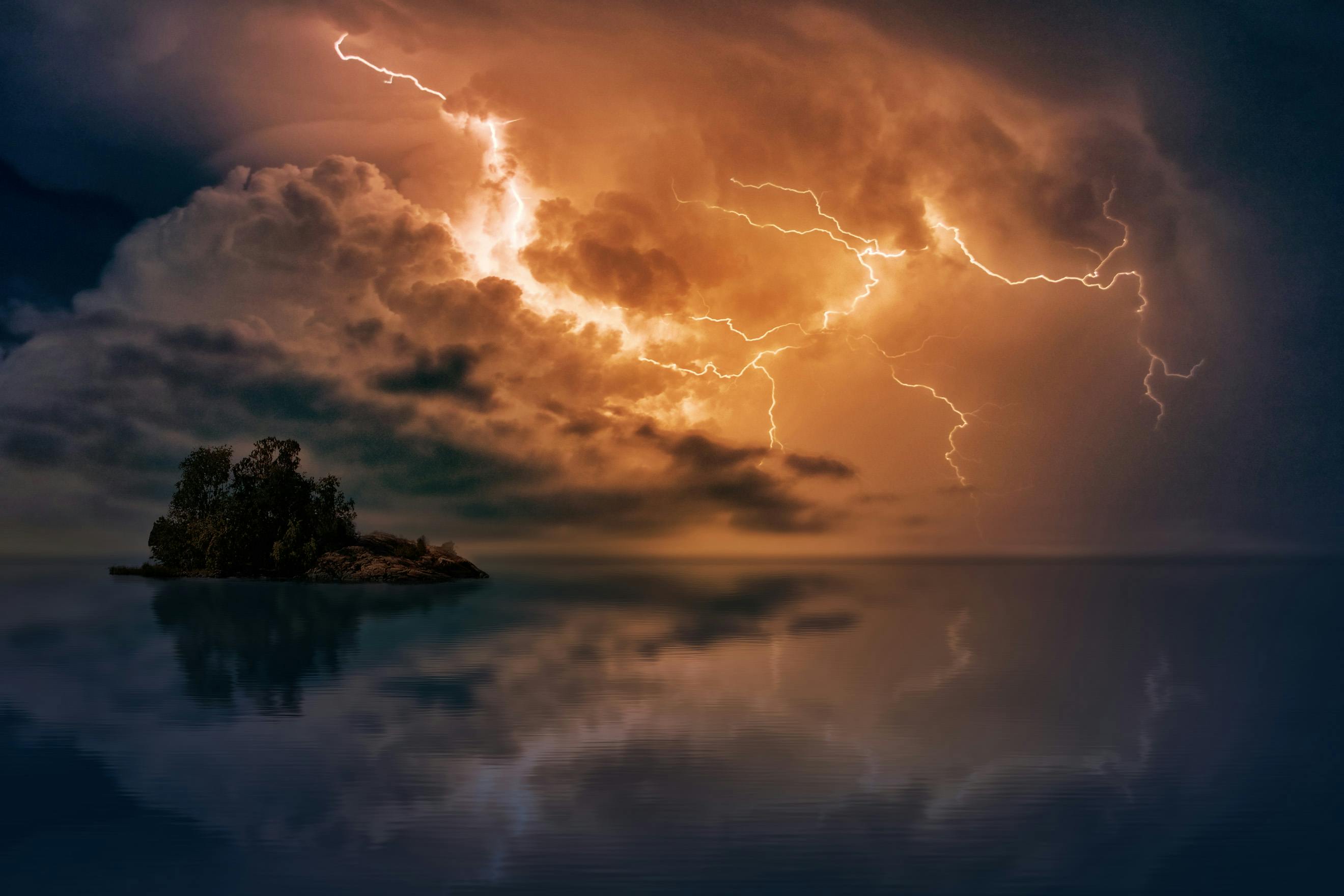 |
| Sometimes we hear the thunder, but don't see the lightning. |
This sermon was preached at St. John's Church, Decatur, AL during the Wednesday Healing Eucharist. The texts for the (transferred) Feast of the Transfiguration of Our Lord are the following:
Sometimes we miss it. That thing
that came before. We only hear the thunder, but we did not catch a glimpse of
the lightning. Only the mess remains from the dog or the kids, but what really
happened here? What came before the aftermath? In our life-long journeys with
God this can also be true.
We find ourselves focused upon
the results of our life. Think about it. We wonder how well did we do? Did we
get the job? How much did we earn last year? Are we raising our kids right? Did
they turn out okay—are they making money and raising their children right? What
car do I drive? What neighborhood do I live in? Life though does not merely
happen in the results.
It is not simply in the thunder,
it’s in the lightning too. It’s not only the results, but the process that led
to it. So, when we recall the Good News of Christ Jesus that we heard today, we
cannot simply celebrate the (transferred Feast of the) Transfiguration, but we
must wonder what came before it. Why did this happen? And, why did it happen
here?
We might expect Peter, James,
and John to follow Jesus up a high mountain at the beginning of his ministry. I
mean isn’t that a perfect way to enter into the competitive 1st
Century religious market in this backwater part of the Roman Empire? Jesus’
initial offering ought to start with a bang—a big pyrotechnical smoke show with
a voice shouting down from heaven—right? Well, that’s not where we are. In
fact, according to the logic of our world, the Transfiguration might just come
at the oddest time possible in Jesus’ ministry.
In Luke’s telling of the story,
Jesus fed the Five Thousand, then asked his followers who he was—to which Peter
replied, “The Messiah of God.” And, right before today’s story Jesus explained
what it meant to be the Son of Man. In this explanation—the lightning to the
Transfiguration’s thunder—Jesus told his disciples that he had to undergo
suffering at the hands of the powerful, rejection by those closest to him, and
death by means of the systematic structures of the day.
In this account of the Good
News, we do not hear the disciples’ response to this difficult, no-good, very
bad news. Still, we can project that this would have been devastating.
Certainly this was not the time for Jesus to reveal through a dramatic journey
up a mountain his divine identity. Well, actually it was.
In all the synoptic Gospel
accounts Jesus told of his suffering right before he traveled up the mountain
to be transfigured. Why would God choose to reveal such glory in the aftermath
of the statement that Jesus had to suffer, be rejected, and die? Well, because
God’s way is not our way. The logic we apply to this world is that if something
bad happens to someone then they must have deserved it. This though is not what
we experience in the life of Christ.
Christ exemplifies for us a
different way. If we are to walk after him we must know that God glorifies not
those who will cause suffering to get ahead, reject even their closest friends,
and do anything necessary to get ahead. No, Christ reveals God’s way is
different. His way calls us to know that God’s glory looks different.
The Transfiguration is not a standalone
event. God showed Peter, James, and John that Jesus was God’s Chosen Son not
because of Christ’s power, but rather because of his letting go of power; his
willingness to endure even the pain that was to come. Jesus’ reveling that he
must endure suffering, rejection, and death was the precursor for the
mountaintop revelation. This is the way that we too are called to walk.
Our lives are not simply about
the huge spiritual revelations that happen amongst the clouds. We are called
also into the suffering, rejection, and death of Jesus, who endured those
atrocities to point us towards the way of limitless love. In our lives we are
called to stand up to the powerful who are focused solely on themselves. For us
to walk onto the mountain hearing the true identity of the one we follow we
also must follow him into suffering, rejection, and death.
No comments:
Post a Comment